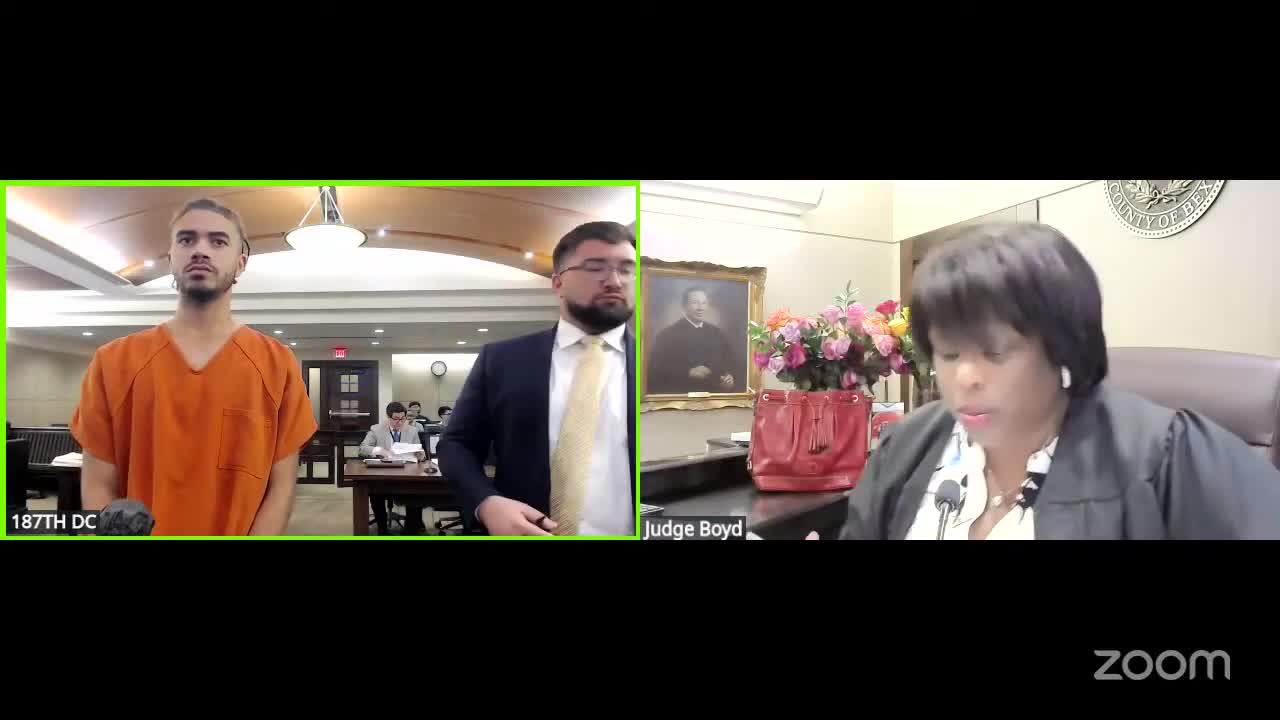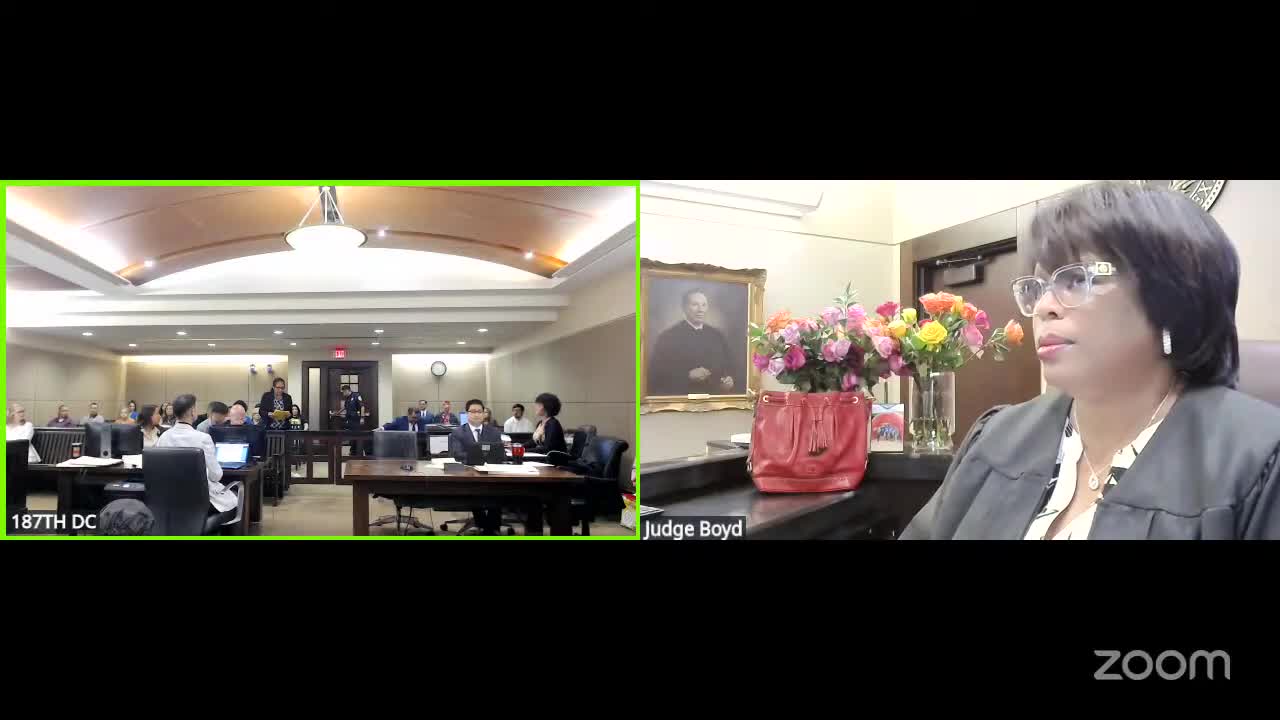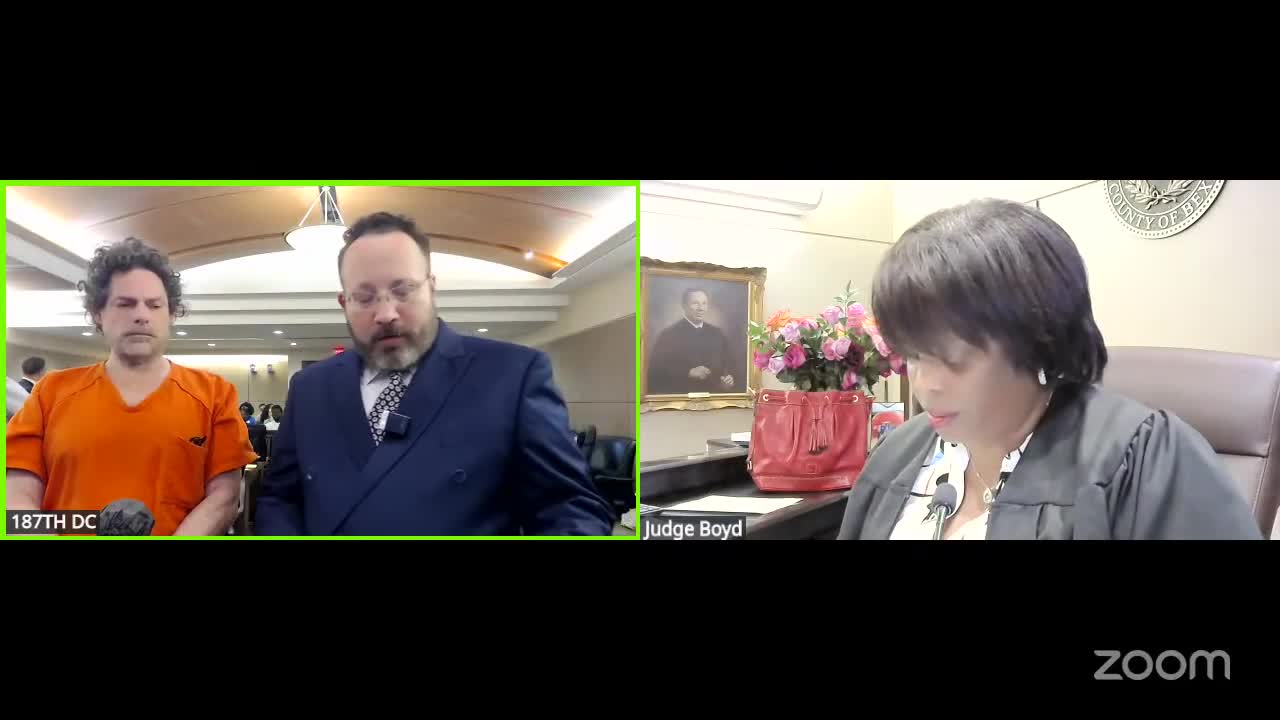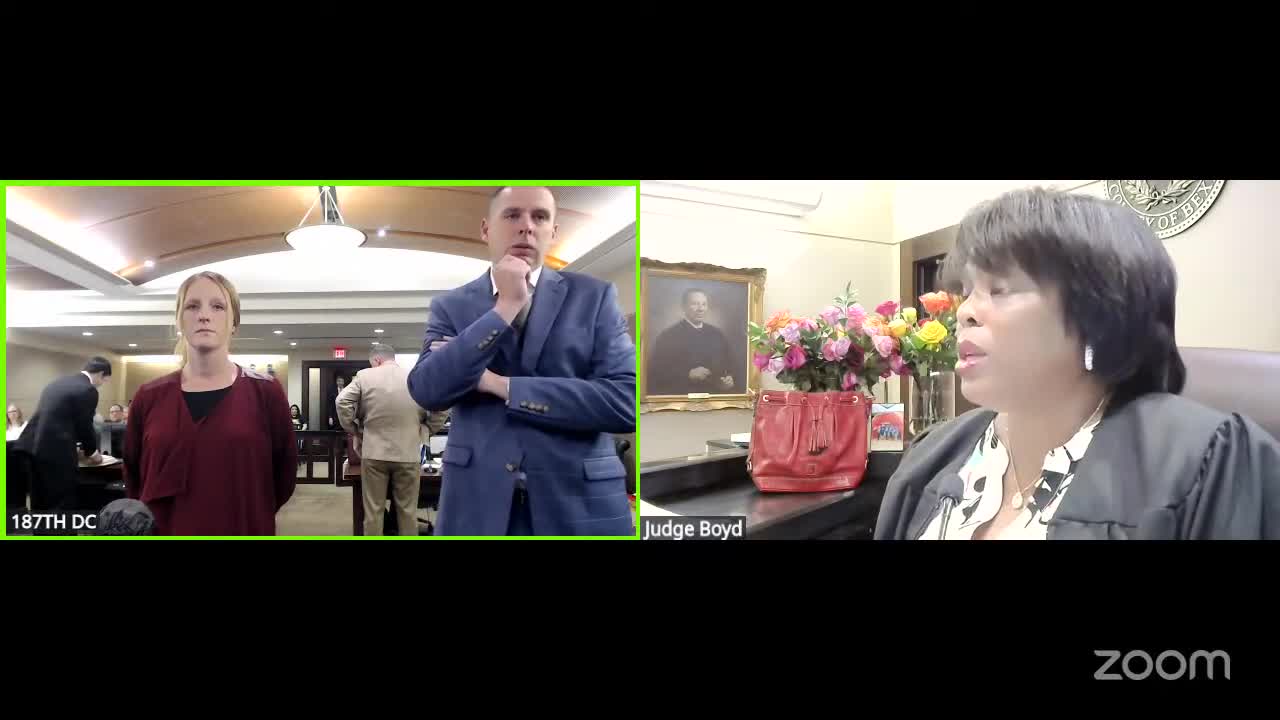Article not found
This article is no longer available. But don't worry—we've gathered other articles that discuss the same topic.

Court denies revocation, imposes treatment and short jail sanction for Dalen Newman

Family delivers emotional victim-impact statements in hearing tied to Jacob Kawazawi matter

Judge denies motions, sets jury trial in Allen terroristic-threat case

